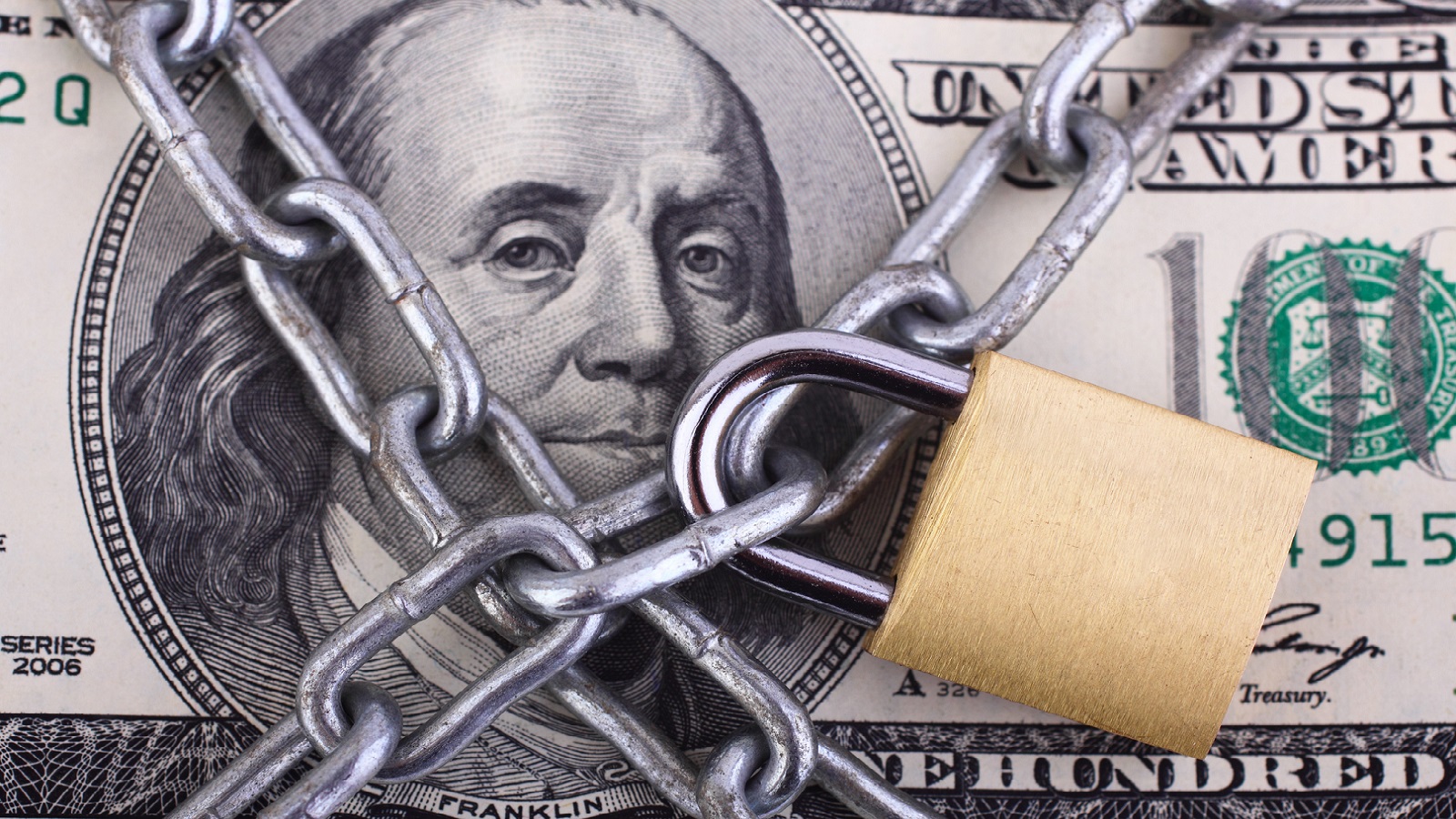
Profit and prosper with the best of Kiplinger's advice on investing, taxes, retirement, personal finance and much more. Delivered daily. Enter your email in the box and click Sign Me Up.
You are now subscribed
Your newsletter sign-up was successful
Want to add more newsletters?

Delivered daily
Kiplinger Today
Profit and prosper with the best of Kiplinger's advice on investing, taxes, retirement, personal finance and much more delivered daily. Smart money moves start here.

Sent five days a week
Kiplinger A Step Ahead
Get practical help to make better financial decisions in your everyday life, from spending to savings on top deals.

Delivered daily
Kiplinger Closing Bell
Get today's biggest financial and investing headlines delivered to your inbox every day the U.S. stock market is open.

Sent twice a week
Kiplinger Adviser Intel
Financial pros across the country share best practices and fresh tactics to preserve and grow your wealth.

Delivered weekly
Kiplinger Tax Tips
Trim your federal and state tax bills with practical tax-planning and tax-cutting strategies.

Sent twice a week
Kiplinger Retirement Tips
Your twice-a-week guide to planning and enjoying a financially secure and richly rewarding retirement

Sent bimonthly.
Kiplinger Adviser Angle
Insights for advisers, wealth managers and other financial professionals.

Sent twice a week
Kiplinger Investing Weekly
Your twice-a-week roundup of promising stocks, funds, companies and industries you should consider, ones you should avoid, and why.

Sent weekly for six weeks
Kiplinger Invest for Retirement
Your step-by-step six-part series on how to invest for retirement, from devising a successful strategy to exactly which investments to choose.
Extrapolating from letters we receive, it’s fair to say the Securities Investor Protection Corp. (SIPC) is one of the most misunderstood organizations in the investment world.
SIPC was created by a 1970 federal law to protect investors against the loss of cash and securities when a member brokerage fails or runs into financial trouble. All registered broker-dealers, with a few exceptions, are SIPC members. But SIPC is not a government agency and has no regulatory or investigatory powers. It will not reimburse you if the value of your investment drops or if you are victimized by a fraud.
This small nonprofit organization’s mission is to return investors’ holdings when a brokerage fails — and only in a limited set of circumstances. Since its 1970 creation, SIPC has overseen the liquidations of 330 failed brokerage houses and returned more than $140 billion to more than 773,000 investors. Fortunately, SIPC hasn’t had to handle a new brokerage failure case since 2017. To get some clarity on how SIPC works, we sat down with CEO Josephine Wang at SIPC’s Washington, D.C., headquarters.
From just $107.88 $24.99 for Kiplinger Personal Finance
Become a smarter, better informed investor. Subscribe from just $107.88 $24.99, plus get up to 4 Special Issues

Sign up for Kiplinger’s Free Newsletters
Profit and prosper with the best of expert advice on investing, taxes, retirement, personal finance and more - straight to your e-mail.
Profit and prosper with the best of expert advice - straight to your e-mail.
KIPLINGER: How does SIPC protection work?
WANG: We protect the custodial function of brokerage houses. Whatever cash or securities the broker is holding for you, we make sure that you get that back, within certain limits. We don’t protect against fraud or market losses. We do protect against theft. So if you’re a victim of a pump-and-dump scheme where the broker-dealer convinces you to buy 100 shares of XYZ and the value drops, all we can do is return those securities to you, whatever the value may be.
But if there’s theft — like what Bernie Madoff did, conducting a Ponzi scheme by taking money from some customer accounts to pay out fictitious gains to other customers — that’s where SIPC protection applies, because we do protect customers against the loss of cash and securities entrusted to the broker. Or, if the broker-dealer, without your permission, takes your money and buys 100 shares of ABC for you, we will unwind that transaction and return your money. But you have to prove that the transaction was not authorized, preferably using things like written notes or records of your instructions to your broker. This is why it’s important to read your account statements and to complain promptly of any irregularity in your account.
How are you different from the Federal Deposit Insurance Corp.?
What we do is somewhat similar to what the FDIC does, but there are some important differences. The FDIC is a federal agency that regulates banks. We are a nonprofit membership organization of broker-dealers. We have no regulatory or enforcement authority, so we don’t have any insight into the financial status of brokerages. That is monitored by the Securities and Exchange Commission (SEC) or FINRA (the Financial Industry Regulatory Authority), the self-regulatory body for brokers.
When does SIPC protection come into play?
If the regulators tell us a firm is in financial trouble and customers need our protection, we review the information. If we agree that the situation is covered by SIPC, we ask a federal court to place the firm in liquidation. The liquidation proceeds in bankruptcy court like a regular bankruptcy case — except that we can provide funding to return cash or securities to account holders.
How do you return investors’ holdings?
Ideally, we try to transfer customer accounts to another brokerage shortly after the firm is placed in liquidation. That allows the customers to get back into their accounts as quickly as possible. That is what happened when Lehman Bros. failed in 2008. The accounts were transferred to different brokerages. All Lehman customers with valid claims were made whole. If we can’t transfer accounts to another brokerage, customers have to go through a claims process, which is what happened in the Madoff case. That case is still ongoing. By suing those who enabled the fraud and clawing back the fraudulent profits taken by some investors, the Madoff trustee, with SIPC’s support, has recaptured more than $14.4 billion for Madoff customers. Anyone who had a claim of up to $1.7 million in deposits has gotten their deposits back. Anyone who deposited more than that has gotten about 71 cents on the dollar so far.
In the Madoff case, you are only returning people’s initial deposits, not bogus gains? And you have sued some of Madoff’s customers to force them to give back money they thought they legitimately earned?
It is a difficult case. In fairness to everyone, the true victims are the people whose money was stolen and used to pay fictitious profits to others. Some people were receiving other customers’ money and were able to buy, say, a vacation home, whereas the person who left the money in the account had nothing. But for Madoff clients, the Madoff trustee set up a hardship program. So if returning the money truly creates a hardship for you, you can ask for relief from the clawbacks.
How much of my money in a brokerage account does the SIPC protect?
A total of $500,000 for cash and securities, of which up to $250,000 can be cash. What that means is that if your firm fails and you have $500,000 in securities that are owed to you, which are for whatever reason missing, we will go into the market and buy those securities and return them to you.
A lot of investors have more than $500,000 in their investment accounts. How can people protect larger accounts?
That cap is set by Congress. Our protection is geared toward smaller investors. But it is possible to hold accounts in different capacities. So, for example, if you have an account in your name, and you have another joint account with your spouse, and you have another trust account, each of those would be eligible for separate protection.
Do you protect cryptocurrency investments or holdings?
Not currently. That’s something that we and all the regulators are grappling with. Unless cryptocurrency is defined as a security under our statute, it’s not going to be protected. We need the courts to rule on this or Congress to act to determine what exactly cryptocurrencies are and how they should be regulated.
How are you funded?
We are funded by a fee that all SIPC member broker-dealers pay. We have built up a reserve fund of about $4.4 billion. And we can borrow up to $2.5 billion from the U.S. Treasury — which we have never had to do. We are aiming to get our reserve fund to $5 billion.
If I have a problem with my brokerage, do I call you?
No. You should call your firm. Then escalate it to a regulator. The SEC and FINRA have online complaint forms that are easy to access.
Note: This item first appeared in Kiplinger's Personal Finance Magazine, a monthly, trustworthy source of advice and guidance. Subscribe to help you make more money and keep more of the money you make here.
Related Content
Profit and prosper with the best of Kiplinger's advice on investing, taxes, retirement, personal finance and much more. Delivered daily. Enter your email in the box and click Sign Me Up.

Kim Clark is a veteran financial journalist who has worked at Fortune, U.S News & World Report and Money magazines. She was part of a team that won a Gerald Loeb award for coverage of elder finances, and she won the Education Writers Association's top magazine investigative prize for exposing insurance agents who used false claims about college financial aid to sell policies. As a Kiplinger Fellow at Ohio State University, she studied delivery of digital news and information. Most recently, she worked as a deputy director of the Education Writers Association, leading the training of higher education journalists around the country. She is also a prize-winning gardener, and in her spare time, picks up litter.
-
 Look Out for These Gold Bar Scams as Prices Surge
Look Out for These Gold Bar Scams as Prices SurgeFraudsters impersonating government agents are convincing victims to convert savings into gold — and handing it over in courier scams costing Americans millions.
-
 How to Turn Your 401(k) Into A Real Estate Empire
How to Turn Your 401(k) Into A Real Estate EmpireTapping your 401(k) to purchase investment properties is risky, but it could deliver valuable rental income in your golden years.
-
 My First $1 Million: Retired Nuclear Plant Supervisor, 68
My First $1 Million: Retired Nuclear Plant Supervisor, 68Ever wonder how someone who's made a million dollars or more did it? Kiplinger's My First $1 Million series uncovers the answers.
-
 It's Time to Rethink What 'Aging Well' Means
It's Time to Rethink What 'Aging Well' MeansDon’t fall into the trap of thinking there is a "right way" to age. Here's how to reframe aging in a healthy, achievable way.
-
 I’ve Played 1,300-plus Golf Courses: These Are the 4 on My 'Must-Play' List for 2026
I’ve Played 1,300-plus Golf Courses: These Are the 4 on My 'Must-Play' List for 2026These four luxury golf courses offer an extraordinary experience for players this year.
-
 How to Plan a (Successful) Family Reunion
How to Plan a (Successful) Family ReunionFrom shaping the guest list to building the budget, here's how to design a successful and memorable family reunion.
-
 Is Direct Primary Care Right for Your Health Needs?
Is Direct Primary Care Right for Your Health Needs?With the direct primary care model, you pay a membership fee for more personalized medical services.
-
 Smart Ways to Share a Credit Card
Smart Ways to Share a Credit CardAdding an authorized user has its benefits, but make sure you set the ground rules.
-
 Tip: Ways to Track Your Credit Card Rewards
Tip: Ways to Track Your Credit Card RewardsHere are the best strategies and apps to help you stay current with your credit card rewards.
-
 How We Manage Our Finances Together as a Married Couple
How We Manage Our Finances Together as a Married CoupleDouglas Boneparth, a certified financial planner, and his wife, Heather Boneparth, speak with Kiplinger about couples managing finances.
-
 Where to Stash Cash as Yields Fall, According to Advisers
Where to Stash Cash as Yields Fall, According to AdvisersYour best options depend on how soon you'll need the money and your tolerance for risk.
